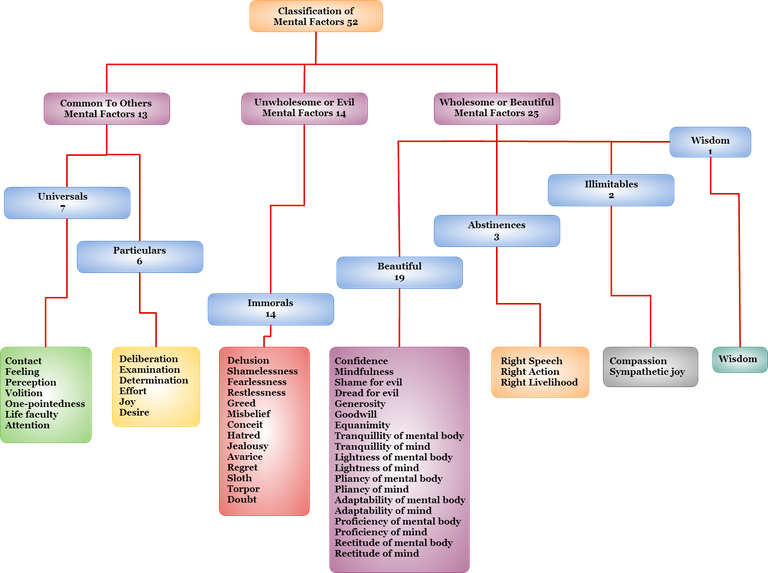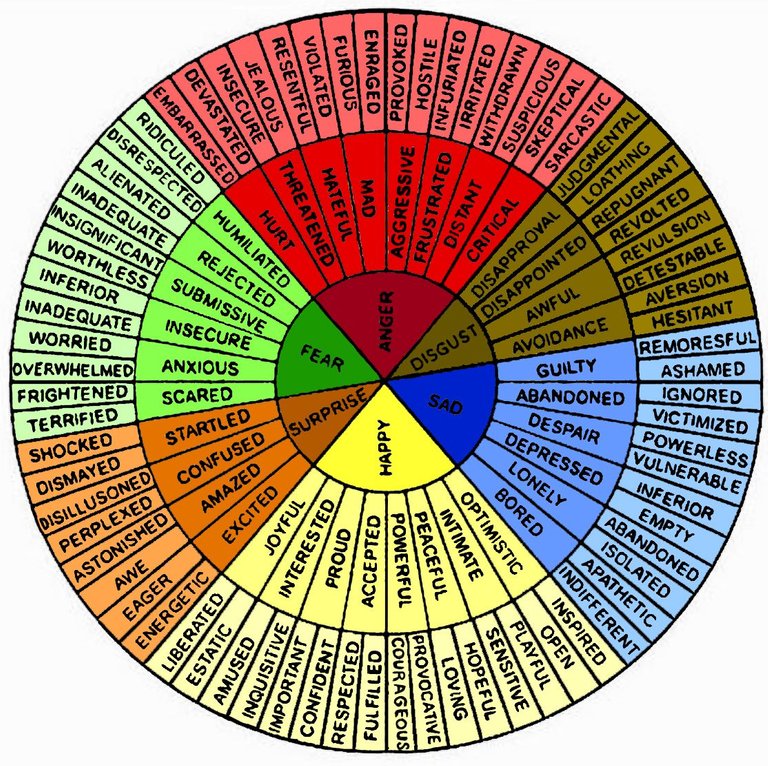
Classification of Mental Factors(Cetasika)
It is said that the reason why we need to practice meditation is to achieve wisdom. Wisdom, as practical intelligence, is not merely the acquisition of knowledge but guides us to live in harmony with this world of interdependence. Through meditation, you must achieve a body of wisdom. That's what spiritual teachers says that wisdom and compassion are all in one.
The cetasika in Abhidhamma is defined as 52 mental factors arised in our consciousness and the reason why we need to understand and to aware is because we must first recognize the instantaneous mind that arises in the world we are facing from moment to moment.
Mental factors are aspects of the mind that apprehend the quality of an object and have the ability to color the mind. Wikipedia
Only then can you change the mind that arises in the next moment with a harmonious mind. That is the way of embodiment of wisdom and compassion. It is not easy but should practice.
There are 52 Mental Factors which, are always accompanied by consciousness: generated at the same time with consciousness, generated at the same place as the consciousness, takes the same goal as consciousness and destructs at the same time with the consciousness.
In classification of mental factors there are 7 concomitants common to every consciousness. There are 6 others that may or may not arise in each and every consciousness. They are termed Particulars. These 13 are designated as common to others in comparison with good and evil.
There are 14 concomitants which are invariably found in every type of immoral consciousness. There are 19 mental factors which are common to all types of moral consciousness. Finally there are 6 other moral concomitants occur as occasion arises. 52(7+6+14+19+6) metal factors are found in the respective types of consciousness in different proportions.
